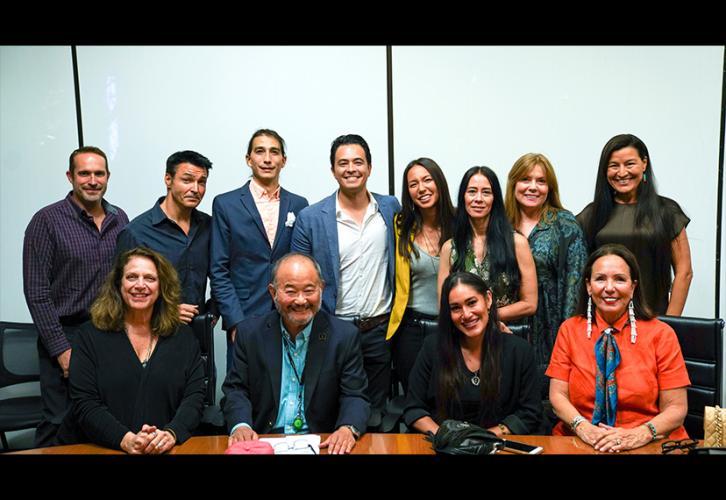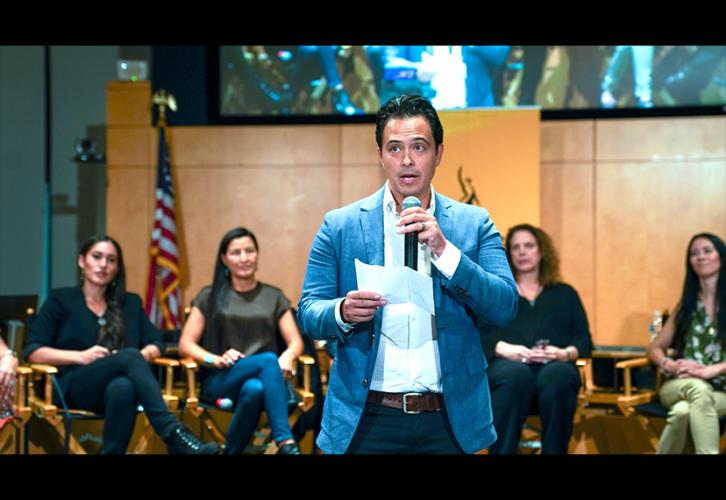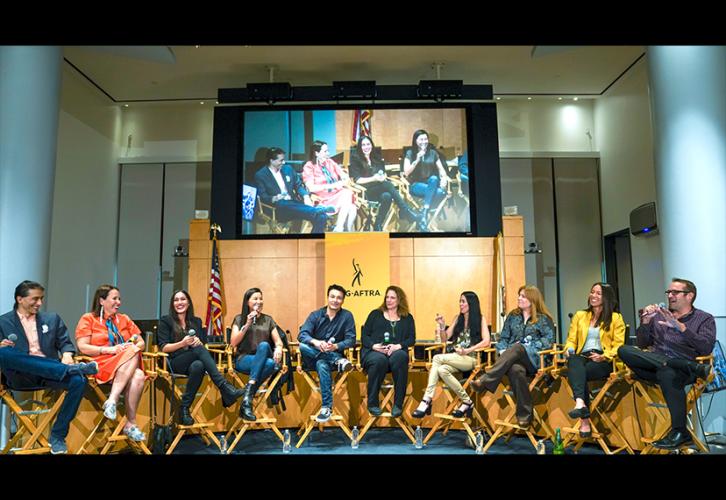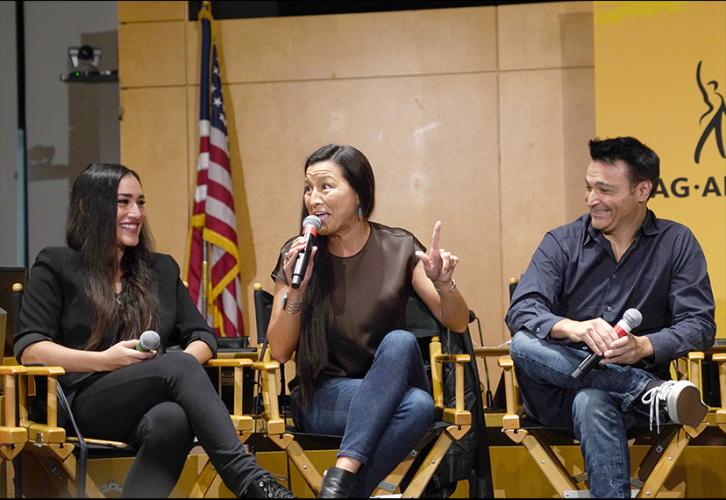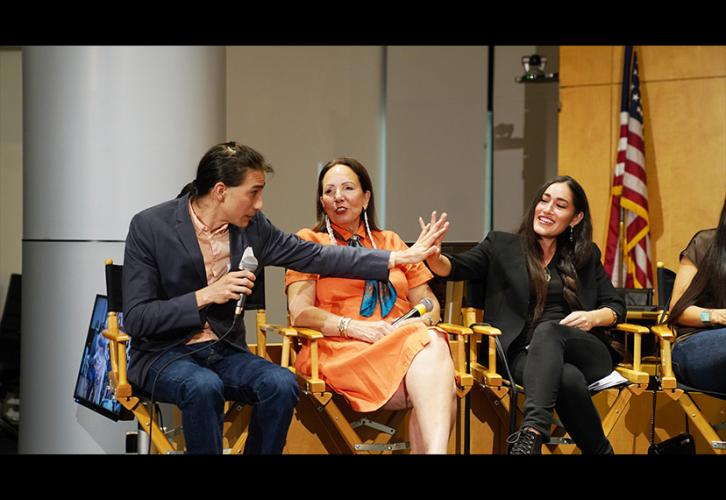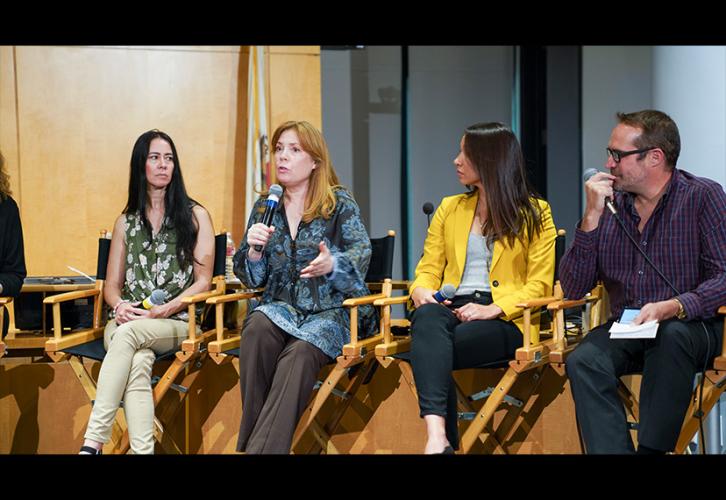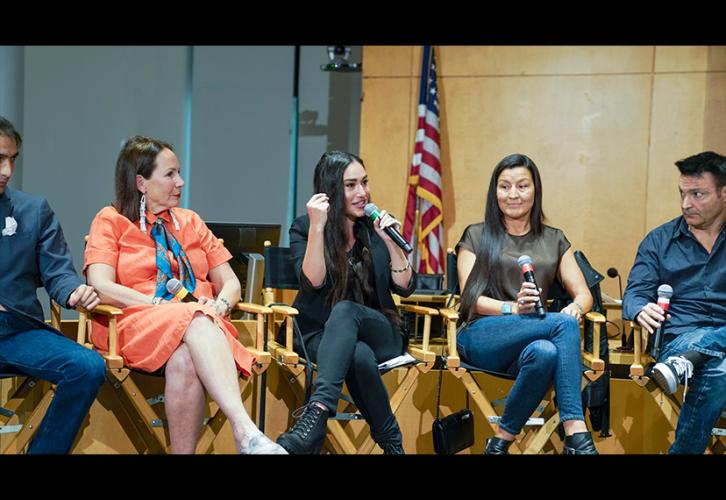
In partnership with the SAG-AFTRA National Native Americans Committee, the Casting Society of America held a Native American and Indigenous Actors Town Hall on Oct. 22 in Los Angeles to discuss ways to cast more indigenous performers. The conversation at SAG-AFTRA Plaza was part of the CSA’s ongoing Commitment to Diversity and Inclusion in Casting Initiative, a part of which includes hosting a series of town halls intended to positively impact access to more and better jobs for actors from historically underrepresented communities.
The town halls, which featured Native American and other indigenous actors and prominent casting directors, drew a mix of SAG-AFTRA members, including Los Angeles National Vice President Clyde Kusatsu and National Native Americans Committee member Jason Grasl, who introduced the panel, CSA members, professional representatives and other industry attendees. CSA President Russell Boast and SAG-AFTRA member Elizabeth Frances (The Son) facilitated an open dialogue with those in attendance and featured guests CSA members Rene Hayes (The Revenant, Twilight), Angelique Midthunder (Once Upon a River) and April Webster (Star Trek); the Writers Guild of America Native American and Indigenous Writers Committee Chair Jason Gavin (Chambers); and SAG-AFTRA members Kimberly Guerrero (Seinfeld), Q’orianka Kilcher (Yellowstone), Sheri Foster Blake (Unbreakable Kimmy Schmidt) and Tokala Black Elk (Wind River).
The conversation began with a discussion of some of the systemic barriers faced by native talent in the industry and the tendency to cast them disproportionally in historical roles.
“Being indigenous, we have such a rich culture, and it can be overwhelming to people that look at us and don’t know really how to place us,” Kilcher said. “We get pushed into the stereotype that we need a feather in our hair … but we want to play contemporary characters.”
Black Elk added jokingly, “I don’t want to just be [in a] period piece. I love wearing pants.”
The conversation shifted to a topic that the casting community and the industry at large are grappling with: Should Native American and other indigenous characters be played only by performers of that background or descent? With more than 500 federally recognized tribes in the United States, many indigenous actors are called to respectfully portray tribes other than their own, with some having to go as far as learning complex languages such as Comanche or ancient Mayan.
Consensus amongst the performers was solid: so long as there are more roles for Native performers, all actors should have opportunities. Haynes, who specializes in indigenous casting, urged her fellow casting directors to adopt more inclusive practices in their audition process. She noted that conducting proper research into the characters and their cultural background along with providing audition material that is already translated into the characters’ respective language or dialect are practical ways to ensure more accurate portrayals of characters, while providing an equal playing field for all who audition.
Said Webster, “The goal is to mainstream someone while embracing their culture and where they come from, too.”
Other solutions discussed included casting directors taking the initiative to provide actors with translated sides to listen and learn from, rather than putting the responsibility on the actors to learn a specific language and dialect. It was noted, however, that the rigorous task of learning other languages has given indigenous performers a skill that oftentimes makes them more well-rounded and marketable as actors.
The conversation ended with panelists noting the rigorous task of learning other languages have given indigenous performers a skill that makes them more well-rounded and marketable as actors. Kilcher offered a final suggestion: “Start creating your own content instead of waiting, sitting there [and] praying.” She went on to praise young people on their “ignited passion” to take action and to take content-making into their own hands.
The town hall ended with the panelists urging indigenous actors in the industry to graciously “pay it forward” by mentoring and developing talent within the native community.
The views expressed by the guests are their own and not that of SAG-AFTRA. Any mention of products or services does not imply SAG-AFTRA’s endorsement.
News
- Tags:
- Local News

